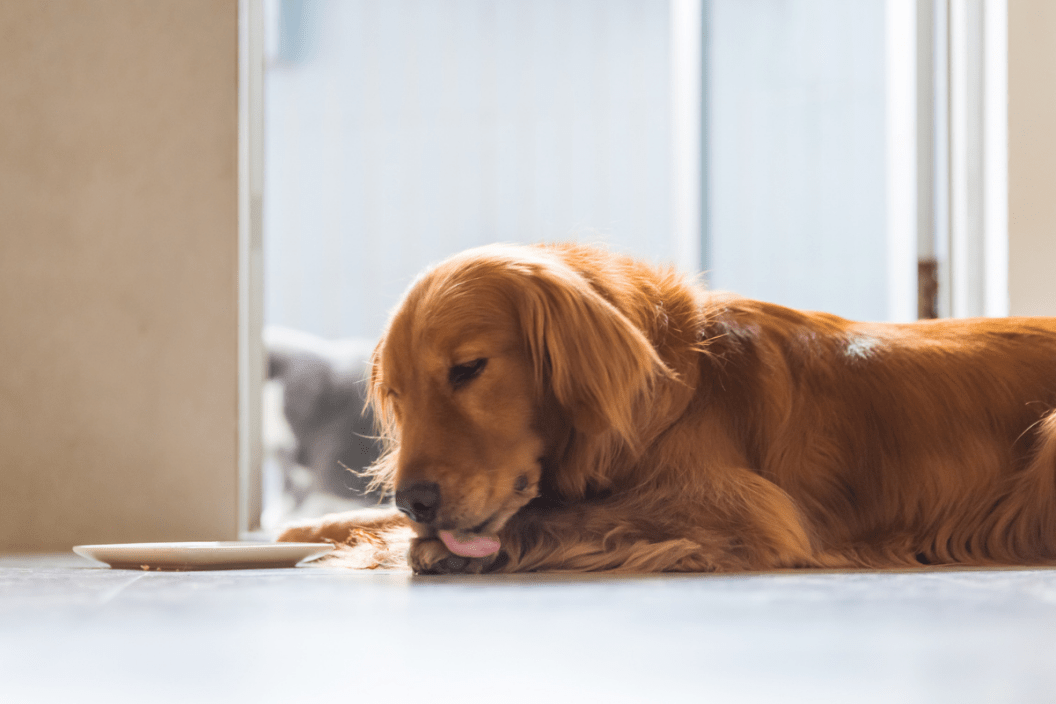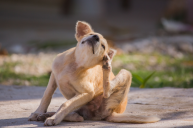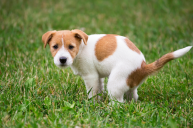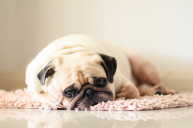When you see your dog licking their paws, it's easy to assume it's just a bad habit, like a human biting their nails. Though that can certainly be the case, paw licking can also be an indicator of something more serious, ranging from allergies to illness.
If you notice excessive your dog licking their paws, take them to the vet so they can be properly evaluated. Leading up to the visit, you should take notes about their recent behavior to better help the vet with their diagnosis. Some things to pay attention to: When does the licking occur? Are the paws swollen or red? Is your dog lethargic? Have they lost their appetite?
To get a sense of what might be going on with your dog, here are some common reasons dogs lick their paws.
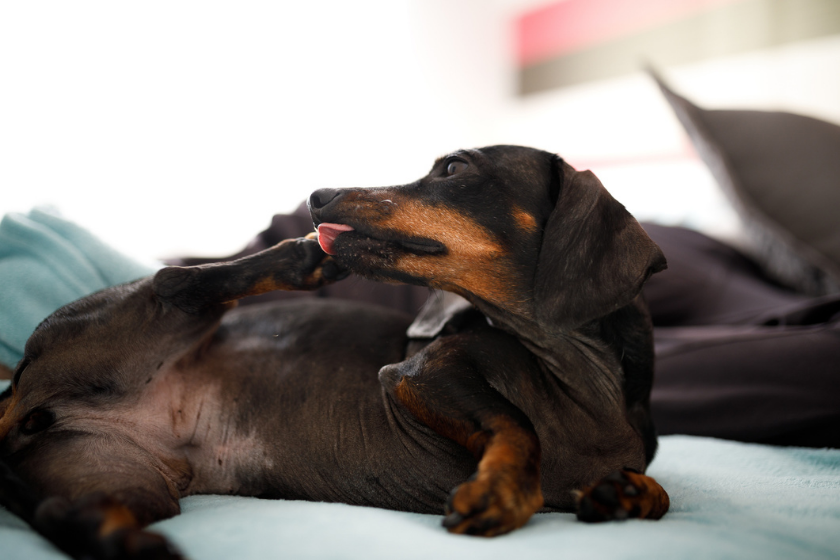
1. Allergies
Yes, dogs suffer from allergies too! If you catch your dog licking excessively but their paw pads appear normal, the licking could be due to a skin condition (dermatitis), which often is the result of bacterial problems or environmental allergens, like pollen or mold. After they've played outside, use dog wipes to remove the allergen and minimize the discomfort. Depending on the severity of the allergy, which can be determined via a test, you may have to break out the Benadryl.
Food allergies are also known to cause itchy paws, though these are more difficult to identify. Let the vet know what you feed your dog, so they can suggest a proper intervention. They may suggest trying an elimination diet to pinpoint the specific allergy, or switching out their food entirely.
2. Pain
Is your dog licking a specific paw? Is the licking accompanied by limping? This might be their way of telling you they're in pain. Whether the discomfort stems from an injury, arthritis, or masses, paw licking is a way to cope with it. In some cases, the pain may not even be on the paw, but licking serves as distraction.
If you're not seeing an obvious limp, you should do a thorough check of your dog's body for insect bites, broken nails, or sharp objects, like a foxtail or piece of wood. If you can't find an obvious sign of damage or if that damage is impossible to deal with on your own, make sure to see a veterinarian.
You should also check their paws for swelling or redness. Dog paw balm can provide relief, but a trip to the vet is necessary if paws are cracked, bleeding, or look infected.
3. Parasites
Fleas and ticks and mites—oh my! Any organism that feeds off the blood of a living creature, can infect your pup and leave them with itchy skin. They can also suffer from hair loss and red skin, according to the American Kennel Club. But itchy paws may only be the beginning. Parasites can lead to large issues, such as anemia and tapeworms. Fortunately, there are a number of preventative measures, including medications and collars that can repel fleas, tickets, and other unwanted organisms. You should also check for ticks and fleas after your dog has spent time outside and remove any you find.
4. G.I. Issues
Gastrointestinal issues can also be linked to licking behavior, because of the effect that gut health has on a dog's response to stress and allergens. The science behind this is complicated, but suffice it to say, an unhealthy gut makes for an unhealthy pup. No one likes stomach problems, including your pooch, and licking could be his warning to you that he's very uncomfortable.
5. Boredom or Anxiety
Some dogs just lick their paws as a form of stimulation or as a way of dealing with anxiety. Excess licking, however, can cause eventual irritation and possible bacterial infections of the skin. To keep boredom at bay, engage with your dog through physical activities or mental games every day. As for anxiety, you should consult your vet on the best course of action. There are several treatments for anxiety, which include training, CBD products, and medication.
Does your dog lick his paws? Tell us on the Wide Open Pets Facebook page!
